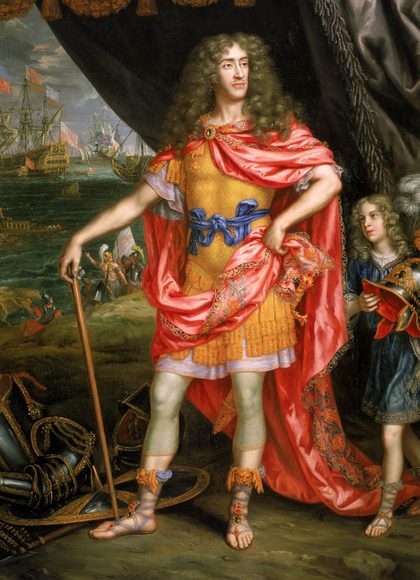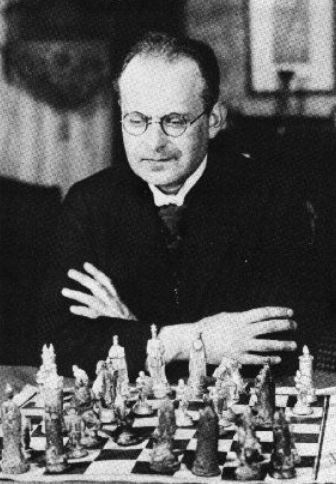The Abhorrers were a political faction in late 17th-century England, emerging during the Exclusion Crisis (1679–1681), a period of intense political conflict centered on the succession to the English throne. Their name, “Abhorrers,” came from their expression of abhorrence for a petitioning movement that sought to exclude James, Duke of York (the future James II), from the line of succession due to his Catholic faith.
1. Context and Background
Restoration of the Monarchy
The Restoration of the Monarchy in 1660 marked the end of a turbulent period in England’s history. After the execution of Charles I in 1649 and the subsequent rule of Oliver Cromwell’s Commonwealth, the English monarchy was restored under Charles II, bringing a sense of stability to a nation torn apart by civil war. However, the restoration did not eliminate the political and religious tensions that had plagued the country.
One of the most pressing issues during this time was the matter of royal succession. Charles II, although a popular king, had no legitimate children, leaving his brother, James, Duke of York, next in line for the throne. However, James’s open practice of Catholicism caused deep concern in Protestant England, where memories of bloody religious conflicts were still fresh. England had firmly established itself as a Protestant nation, and the prospect of a Catholic monarch threatened to undermine the religious and political order that had been rebuilt after the Commonwealth.
Religious Tensions in England
At the core of the Exclusion Crisis were the religious tensions that had long simmered in England. Protestantism had become a cornerstone of English identity since the Reformation, and the English public, particularly the ruling classes, harbored deep suspicions toward Catholicism. Many feared that a Catholic king would align England with Catholic powers in Europe, potentially threatening the Protestant faith and England’s autonomy.
James, Duke of York’s Catholic faith made him a target of widespread opposition. Public and political leaders alike feared that James would use his position as king to reintroduce Catholicism as the dominant religion, undermining the Church of England and reversing the gains made during the Reformation. This fear was not only theological but also political, as many associated Catholicism with absolutism and feared that James would attempt to consolidate power and diminish the role of Parliament.
These tensions created a fertile ground for the rise of factions, including the Whigs, who sought to exclude James from the throne, and the Abhorrers, who stood against such efforts, viewing them as dangerous to the stability of the monarchy and the nation.

2. The Exclusion Crisis (1679–1681)
Rise of the Whigs
The Exclusion Crisis arose from a profound political and religious debate in England over whether James, Duke of York, should be allowed to succeed his brother, Charles II, as king. The Whigs, a political faction that had grown in influence, led the effort to exclude James from the line of succession. Their central argument was rooted in fear of Catholicism. They believed that if James, a devout Catholic, were to become king, he would use his power to undermine Protestantism and potentially restore Catholicism as the state religion.
To the Whigs, the exclusion was not just a political matter but a necessity to preserve Protestant England. They feared that James’s reign could threaten both the religious freedom of Protestants and the constitutional balance between monarchy and Parliament. The Whigs sought to pass legislation known as the Exclusion Bill, which would have legally barred James from inheriting the throne. This led to a major political crisis, with the Whigs gathering significant support, particularly among those who viewed James’s Catholicism as a direct threat to England’s Protestant identity and parliamentary governance.
Formation of the Abhorrers
In direct opposition to the Whigs were the Abhorrers, a faction that rejected the idea of excluding James from the throne. The Abhorrers earned their name from their expression of “abhorrence” toward the Whigs’ petitions and efforts to alter the line of succession. They believed that meddling with the natural order of royal inheritance would destabilize the monarchy and lead to dangerous precedents for future political interference.
The Abhorrers aligned themselves with the Tories, a political faction that championed royal authority and the preservation of the Church of England. For the Abhorrers and the Tories, loyalty to the monarchy and the traditional structures of power were paramount. They believed in the divine right of kings, a doctrine that asserted that monarchs were appointed by God and that their authority was not subject to parliamentary interference. This belief reinforced their view that excluding James would not only be a breach of royal tradition but an affront to God’s will.
Moreover, the Abhorrers feared that excluding James could lead to civil war. England had only recently emerged from the bloody conflicts of the English Civil War and the Cromwellian Commonwealth, and the memory of that violence was still fresh. The Abhorrers were deeply concerned that attempts to exclude James would revive these tensions and throw the nation into chaos. For them, maintaining the continuity of the monarchy, even under a Catholic king, was crucial for preserving national stability.
3. Actions and Influence of the Abhorrers
Petitions and Public Declarations
In response to the growing pressure from the Whigs to exclude James, Duke of York, from the line of succession, the Abhorrers took decisive action through petitions and public declarations. These petitions were designed to counter the efforts of the Whigs, who had gained popular support by advocating for the Exclusion Bill. The Abhorrers expressed their loyalty to the crown and abhorrence of any attempts to interfere with the natural order of succession.
The key arguments put forth by the Abhorrers revolved around their belief in the divine right of kings and the dangers of setting a precedent that Parliament could dictate royal succession. They argued that excluding James would be an act of rebellion against both God’s will and the authority of the monarchy. In their declarations, the Abhorrers framed the exclusion efforts as unconstitutional and destabilizing, warning that such actions could lead to civil unrest or even a return to the violent divisions of the English Civil War. Political Divide
The opposition between the Petitioners (Whigs) and Abhorrers created a stark political divide in England. On one side, the Whigs advocated for the exclusion of James as a necessary safeguard for Protestantism and parliamentary power. On the other side, the Abhorrers stood firmly for the protection of royal succession and the integrity of the monarchy.
This division deepened the social and political rifts in English society. While the Whigs garnered support from urban areas, the Abhorrers, aligned with the Tories, found their base among the landed gentry and rural populations, who were more inclined to support the monarchy and the Church of England. The conflict between these two factions reflected not just a struggle over the succession, but also a broader struggle over the future of constitutional monarchy in England and the balance of power between the crown and Parliament.
Impact on the Formation of Political Parties
The Exclusion Crisis and the fierce opposition between the Petitioners and Abhorrers played a critical role in the formalization of England’s first political parties: the Whigs and Tories. While political factions had existed before, the intense conflict over James’s succession solidified these groups into more structured parties, each representing distinct ideologies and political interests. The Tories, with whom the Abhorrers were aligned, championed royal prerogative, loyalty to the monarchy, and the established Church of England. In contrast, the Whigs favored parliamentary sovereignty, religious tolerance (at least for Protestants), and limitations on royal power. This conflict set the stage for the two-party system that would dominate British politics for centuries, with the events surrounding the Exclusion Crisis cementing these parties’ identities and political platforms.
4. Resolution of the Exclusion Crisis
Charles II’s Response
As the Exclusion Crisis escalated, Charles II took decisive steps to maintain his control over the monarchy and prevent the passage of the Exclusion Bill. In 1681, he dissolved the Oxford Parliament, effectively ending the parliamentary efforts to exclude his brother, James, Duke of York, from the line of succession. By taking this action, Charles asserted royal authority and silenced the Whig attempts to alter the course of the monarchy.
For the remainder of his reign, Charles avoided calling another Parliament, thus preventing further challenges to James’s succession. This political maneuver not only ended the Exclusion Crisis but also secured James’s place as heir. Upon Charles II’s death in 1685, James II ascended to the throne, despite the deep opposition from many in Parliament and the public who feared his Catholicism. James II’s Reign and the Glorious Revolution
James II’s reign was short-lived and fraught with controversy, primarily due to his efforts to promote Catholicism in a staunchly Protestant nation. He introduced policies that alienated the Protestant elite, such as appointing Catholics to key military and political positions and issuing the Declaration of Indulgence, which suspended laws penalizing Catholics and dissenting Protestants. His attempts to centralize power and reduce the influence of Parliament further intensified the political tensions that had been brewing since the Exclusion Crisis.
These policies, along with the birth of his Catholic son and heir in 1688, led to widespread fears that a Catholic dynasty would become entrenched in England. In response, a group of English nobles invited William of Orange, James’s Protestant son-in-law, to invade England. This led to the Glorious Revolution in 1688, a largely bloodless coup that resulted in James II’s overthrow. William and his wife Mary, James’s Protestant daughter, were installed as co-rulers, and the principle of a Protestant monarchy was firmly established, marking the end of the Exclusion Crisis’s unresolved tensions. The Glorious Revolution ensured that England would remain a Protestant nation and permanently limited the powers of the monarchy, shaping the future of British constitutional governance.

5. Historical Significance of the Abhorrers
Defense of the Monarchy
The Abhorrers played a crucial role in defending the established order of the English monarchy during the Exclusion Crisis. Their staunch opposition to the Whig-led movement to exclude James, Duke of York, was rooted in their commitment to preserving the royal succession and upholding the divine right of kings. By rejecting the Exclusion Bill and resisting attempts to manipulate the line of succession, the Abhorrers championed the continuity and stability of the monarchy, which they viewed as essential for national unity and governance.
Their defense of the monarchy was not merely about supporting a Catholic heir but about protecting the traditional structures of power from what they saw as unconstitutional interference. This resistance was crucial in maintaining the status quo during a period of intense political instability, helping to prevent a potential power vacuum or civil unrest that could have resulted from a forced change in succession.
Legacy and Long-term Impact
The political actions of the Abhorrers had a lasting influence on the political landscape of England. Their opposition to the exclusion of James and their alignment with the Tories contributed to the formalization of the Tory party. The Abhorrers, through their steadfast support for the monarchy and the established Church, laid the groundwork for the Tory party’s emphasis on royal authority, traditional values, and resistance to radical change. The conflict between the Abhorrers and the Whigs also set the stage for the development of England’s first political parties. The ideological divide highlighted by the Exclusion Crisis helped solidify the Tories and Whigs as distinct political entities, each with their own platforms and policies. This early party system became a foundation for modern British politics, influencing the structure and nature of political debate in subsequent years.
Furthermore, the events of the Exclusion Crisis and the Abhorrers’ role in it had broader implications for the relationship between monarchy and parliamentary power. The eventual resolution of the crisis and the Glorious Revolution underscored the shifting balance of power in England, moving towards a constitutional monarchy where parliamentary authority was increasingly recognized and upheld. The Abhorrers’ defense of royal authority was pivotal in the short term, but the long-term impact of their actions contributed to the evolution of the British political system into one that balanced royal prerogative with parliamentary sovereignty.
Conclusion
The Abhorrers played a significant role in shaping 17th-century English politics during a period of intense upheaval and division. Their steadfast defense of the monarchy against the Whig-led efforts to exclude James, Duke of York, from the line of succession was crucial in maintaining the traditional structures of power and ensuring the continuity of the English crown. By opposing the Exclusion Bill and supporting the divine right of kings, the Abhorrers contributed to the preservation of royal authority at a time when the future of the monarchy was in jeopardy.
Their actions not only defended the monarchy but also played a key role in the formation of England’s first political parties. The Abhorrers, aligned with the Tories, helped solidify the ideological foundations of what would become the Tory party, setting the stage for the development of England’s modern political landscape. Their resistance to the exclusion movement highlighted the deep political and religious divides of the era and contributed to the emergence of a more organized party system. In reflecting on the historical significance of the Abhorrers, it is clear that their actions were instrumental in both preserving the monarchy and influencing the evolution of political parties in England. Their legacy is seen in the enduring balance between royal authority and parliamentary power, shaping the course of British history well beyond their immediate context.
References
- “The Exclusion Crisis, 1678-1683” by John Miller.
- “The English Civil War: A People’s History” by Diane Purkiss.
- Historical Archives and Articles from the British History Online platform (https://www.british-history.ac.uk).
- “Tories, Whigs, and the Glorious Revolution” by Linda Colley.
FAQ: Who Were the Abhorrers in History?
1. What was the main goal of the Abhorrers during the Exclusion Crisis?
The Abhorrers aimed to defend the royal succession and uphold the traditional line of inheritance. They opposed the Whig-led efforts to exclude James, Duke of York, from the throne due to his Catholic faith. The Abhorrers believed that altering the line of succession would destabilize the monarchy and undermine the divine right of kings.
2. Why did the Abhorrers oppose the Exclusion Bill?
The Abhorrers opposed the Exclusion Bill because they viewed it as a dangerous precedent that would undermine the monarchy and the established order. They were concerned that excluding James based on his religion would set a harmful precedent for future political interference and potentially lead to civil unrest or instability.
3. How did the Abhorrers influence the formation of political parties in England?
The Abhorrers played a key role in the early formation of the Tory party. Their opposition to the exclusion movement and their defense of royal authority aligned them with the Tories, who championed the preservation of the monarchy and the Church of England. This ideological divide between the Abhorrers and the Whigs contributed to the formalization of the Tory and Whig parties in England.
4. What were the main concerns of the Abhorrers regarding James II’s succession?
The Abhorrers were concerned about the potential instability that might arise from altering the line of succession. They believed that the exclusion of James could lead to further political conflict or even civil war. Additionally, they were committed to upholding the divine right of kings and maintaining the traditional structures of power.
5. What were the key actions taken by the Abhorrers in response to the Whig movement?
The Abhorrers responded to the Whig movement by issuing petitions and public declarations that expressed their loyalty to the crown and their opposition to the exclusion efforts. They argued that excluding James would be unconstitutional and destabilizing, and they sought to counteract the Whig campaign by reinforcing their support for the monarchy.
6. How did the Exclusion Crisis come to an end?
The Exclusion Crisis ended in 1681 when Charles II dissolved the Oxford Parliament, effectively halting the Whig efforts to pass the Exclusion Bill. James II succeeded Charles II in 1685, and his subsequent reign, although short and controversial, marked the end of the immediate conflict over succession.
7. What was the significance of the Glorious Revolution in relation to the Abhorrers?
The Glorious Revolution of 1688, which resulted in the overthrow of James II and the accession of William of Orange and Mary, was significant because it resolved the conflicts that had arisen during the Exclusion Crisis. The revolution established a Protestant monarchy and further defined the balance of power between the monarchy and Parliament, impacting the legacy of the Abhorrers and their efforts to defend the royal succession.
8. How did the actions of the Abhorrers impact the political landscape of England?
The Abhorrers’ actions contributed to the early development of England’s political parties, particularly the Tory party. Their defense of the monarchy and opposition to the Whigs’ exclusionary tactics helped shape the political discourse of the time and laid the groundwork for the modern party system in Britain. Their influence also underscored the evolving relationship between the monarchy and parliamentary power.




